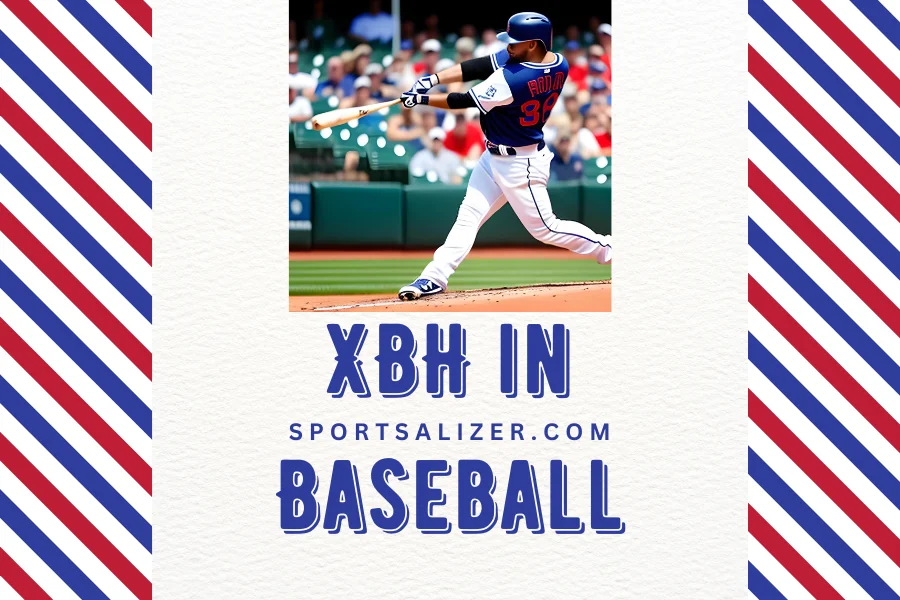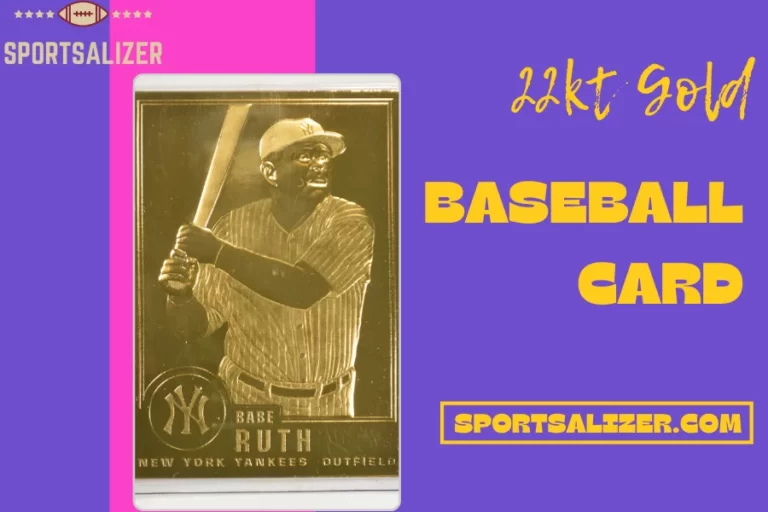XBH in Baseball: Unraveling the Exciting World of Extra-Base Hits

In the realm of baseball, there is an array of statistical measurements that help assess a player’s performance and a team’s success. One such metric is XBH, which stands for Extra-Base Hits. In this article, we delve into the fascinating world of XBH in baseball, exploring what it means, how it is calculated, and its significance in evaluating player contributions and team offensive prowess.
Contents
Understanding Extra-Base Hits (XBH) Extra-Base Hits Defined
Extra-base hits refer to hits made by a batter that allows them to reach second, third, or even home base without the need for a subsequent plate appearance. These include doubles, triples, and home runs and are regarded as powerful offensive plays in baseball.
Calculating Extra-Base Hits (XBH)
- Doubles: Doubles occur when a batter successfully hits the ball and safely reaches second base without being put out. They are an essential component of XBH, and players who excel in hitting doubles demonstrate exceptional power and placement in their swing.
- Triples: A triple occurs when a batter hits the ball and successfully reaches third base without being put out. Triples are less common than doubles but often indicate a combination of powerful hitting, speed, and smart base running. They significantly contribute to a player’s XBH.
- Home Runs: Home runs are undoubtedly the most celebrated type of XBH. When a batter hits a ball that goes over the outfield fence, it results in an automatic run scored. Home runs showcase immense power and are the most efficient way to accumulate XBH.
Significance of XBH in Baseball
- Offensive Power: XBH plays a crucial role in evaluating a player’s offensive performance. Batters who consistently produce extra-base hits are vital assets to their teams, as these hits often result in runs and put pressure on the opposing team’s defense. XBH can swing the momentum of a game and electrify both players and fans.
- Run Production: XBH has a direct impact on run production. By accumulating extra-base hits, teams increase their chances of scoring runs. These hits provide an opportunity for runners to advance multiple bases and cross home plate, significantly influencing a team’s overall offensive output.
- Slugging Percentage (SLG): XBH heavily influences a player’s slugging percentage (SLG), which is a metric that measures the total number of bases a batter earns per at-bat. A higher SLG indicates a player’s ability to generate extra-base hits, making it a vital statistic when assessing offensive prowess and comparing players’ performances.
Strategies for Maximizing XBH
- Power Hitting: Developing and honing power-hitting skills is crucial for players looking to accumulate XBH. This involves techniques such as generating bat speed, refining swing mechanics, and aiming for optimal contact points to drive the ball deep into the outfield.
- Speed and Base Running: For hits that have the potential to be extra-base hits, speed and base running skills are pivotal. Players with exceptional speed can turn doubles into triples and singles into doubles by taking advantage of defensive lapses or smart base-running decisions.
- Selective Hitting and Pitch Recognition: Being able to identify pitches and show discipline at the plate can enhance a batter’s ability to make solid contact and hit for extra bases. Understanding the strike zone, recognizing off-speed pitches, and selectively swinging at favorable pitches can improve a player’s chances of delivering XBH.
FAQs on XBH in Baseball
How does a player’s XBH contribute to their overall offensive performance?
Extra-base hits (XBH) directly impact a player’s offensive performance by showcasing their power, ability to hit for distance, and skill in base running. Accumulating XBH increases a player’s slugging percentage (SLG) and contributes to run production, making them valuable assets to their team’s offensive success.
Which type of XBH is the most impactful?
Home runs are the most impactful type of XBH. They result in an automatic run and contribute four bases to a player’s SLG. Home runs demonstrate power, timing, and precision, often serving as game-changing moments that energize players and fans.
Can a batter still contribute to XBH if they don’t hit home runs?
Absolutely! While home runs are the most celebrated type of XBH, doubles and triples also play a significant role in a player’s XBH count. Doubles and triples require a combination of power-hitting, base running, and smart placement, showcasing a batter’s ability to advance beyond first base.
Are there any strategies that players use to maximize XBH?
Players can employ several strategies to increase their chances of hitting extra-base hits. These include focusing on power-hitting techniques, refining swing mechanics, improving base running skills, and developing the ability to recognize pitches and selectively swing at favorable ones. A combination of power, speed, and strategic decision-making can help players maximize their XBH count.
How does XBH impact a team’s offensive performance?
XBH significantly contributes to a team’s offensive performance by increasing the likelihood of scoring runs. When players accumulate XBH, it puts pressure on the opposing team’s defense, advances baserunners, and creates scoring opportunities. XBH can swing the momentum of a game, energize the team, and contribute to overall offensive success.
Conclusion
Extra-base hits (XBH) are an exciting facet of baseball that showcase a batter’s power, speed, and offensive prowess. Doubles, triples, and home runs all contribute to a player’s XBH count, which directly impacts their overall offensive performance. Accumulating XBH is essential for driving run production and energizing a team’s offensive capabilities. By understanding the significance of XBH and implementing strategies to maximize their occurrence, players and teams can elevate their game to new heights in the world of baseball.










